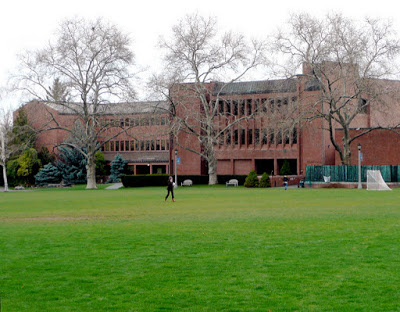Think Big: The Evolution of Ideas
Continuing conversations with my creative consultant for my website overhaul, I’ve been asked to explore the evolution of the values and ideas that inform how I teach and write today.
Stories are valuable. This idea was instilled in me at an early age. Raised by two English majors, I grew up in a house of books. I was freely encouraged to explore all kinds of passions: puffy paint t-shirt designs, homemade bubble gum recipes, performing skits, building tree-forts, and picking blackberries were just a few of my early obsessions as a girl growing up in Portland, Oregon. Maturing during the peak of the Grunge music movement, my skeptical, brooding, teenage self emerged. By the time I reached Ms. Wood’s English class as a junior at Wilson High School, I believed there were too many things that “didn’t add up” about society. I felt angry, confused, adamant. What was our purpose in life and did it always have to come at a cost to others or the environment? I wanted answers and many of the places I’d grown accustomed to looking, didn’t have them.
Through Ms. Wood’s reverence for the practice of writing and her passionate teaching of Walden by Henry David Thoreau, in particular, I was changed. The answers I needed could be found through action. I dove deeper into the music and coffee cultures spilling across downtown Portland (R.I.P La Luna night club; R.I.P. Coffee People Coffee), including frequent pilgrimages to Powell’s City of Books. Coffee, books, music, and the outdoors felt authentic to me; ripe with potential for something that mattered, something that could make a difference. I also spent more time in the wilderness, including a 5-day solo backpacking trip in the White Mountains of New Hampshire, which I saved money for, planned, and completed at the age of 16.
 |
| Olin Hall across Ankeny Field at Whitman College, where I spent many hours studying. |
At Whitman College, I was looking for something that felt as alive as the clubs I saw my favorite Portland bands perform in; something as vibrant as a triple Americano; something with stakes. To drink a cup of coffee is more than meeting a craving or attempting to caffeinate; it’s an optimistic gesture, as if to say: Whatever’s next, I’m going to find it. Soon enough, I found my people at Whitman and settled in for four years of hard, gratifying work. The Philosophy Department became my home, most notably because of a professor named Tom Davis, whose passion for the Socratic Method infused his lectures. Professor Davis was able to bridge the gap between ancient and modern concerns, applying Socrates’ style of inquiry to today’s problems: We discussed the ethical dilemmas of then-President Bill Clinton’s personal life; we pondered the inherent misunderstanding of youth suicides; we argued for or against the usefulness of gender roles in 20th Century America. Every conversation—always framed as a journey along a particular line of thinking—ultimately led to a moment of ecstatic uncertainty.
And there it is–ecstatic uncertainty–the only phrase I can come up with to describe the feeling I’ve carried with me through all stages of life; a feeling that, today, informs how I teach and write. Ecstatic uncertainty is what it feels like when a person is presented with the opportunity to stretch beyond his or her comfort level and current understanding of the world. While Socrates was largely misunderstood (and ultimately executed) for cornering noble people into logical fallacies, Professor Davis helped his students see the inherent liveliness of such exploration. Time and again he asked us to leap, and eventually, we learned that the net would appear.
Is it too much to think that picking blackberries as a child, that drinking coffee as a broody adolescent, that thinking deeply while gazing across Ankeny Field, that believing I could write about war, that living in an Airstream, that backpacking around an active volcano, that teaching creative adults, that writing flash fiction in particular, and that living the writing life are all alike in this way? That they’re connected by ecstatic uncertainty and, at the end of the day, the belief that “Whatever’s next, I’m going to find it” can, in fact, suggest a path through life?
Nope. Like a third shot of espresso–no, not too much at all.

